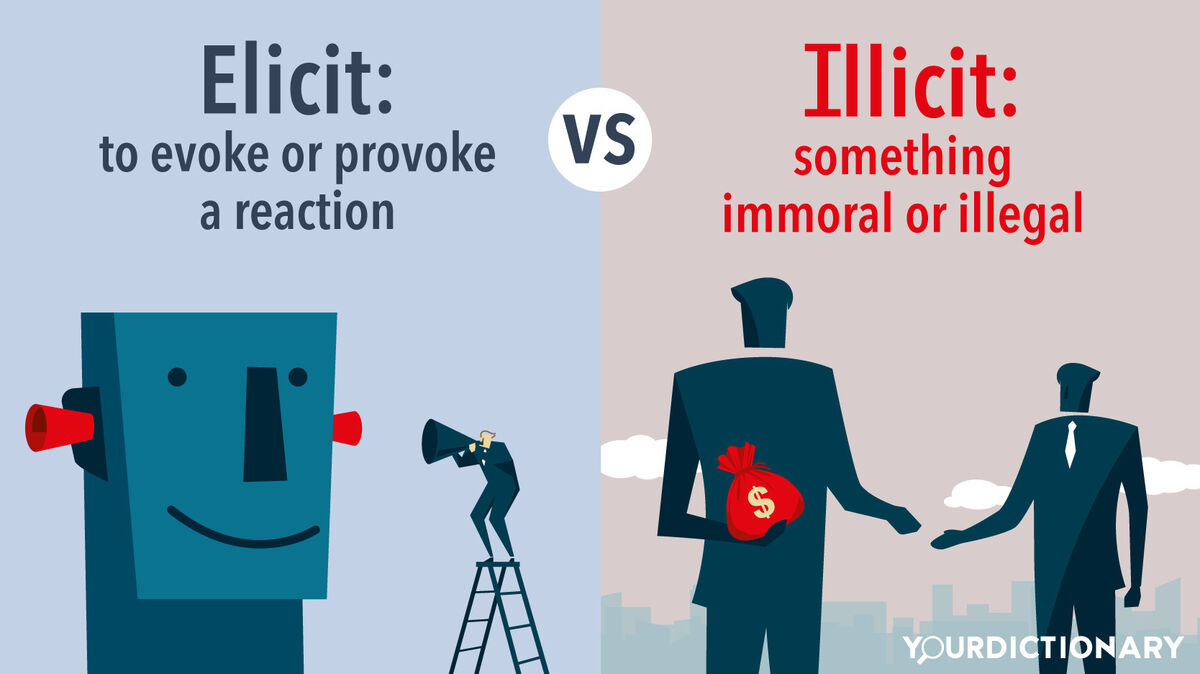
Do you elicit a response or illicit a response? Is the crime elicit or illicit? While these words may look and sound similar, they have nothing in common. Discover the differences between elicit and illicit, and learn about their meanings and uses.
Elicit and Illicit: The Definitions and Differences
While elicit and illicit may look and sound similar, they are neither synonyms nor antonyms. These two words are homophones, which sound the same but have unique spellings, meanings and uses. The subtle difference in sound is that elicit is sometimes pronounced eh-lih-siht and illicit is pronounced ih-lih-siht.
elicit - to produce something, such as a reaction or information
illicit - something immoral or illegal
Elicit Meaning and Usage
Elicit is a verb that means "to evoke or provoke a reaction." The reaction can be emotional, physical, vocal, or metaphorical. The word elicit comes from the Latin elicere, which means “to draw out by trickery” and is itself derived from lacere, which means "to entice” or “to deceive.” While the origins imply provoking emotions through negative means, the modern definition is simply “to draw forth” something.
He wanted to see if he could elicit a response from the man.
She tried to elicit sympathy for herself.
Different kinds of music elicit different emotions in people.
How to Use Illicit
Illicit is an adjective that refers to something that is "prohibited by law, custom or societal standards." It comes from the Old French illicite, which means “forbidden” and “unlawful.” This word is itself a derivative of the Latin illicitus, which means “not allowed” or “illegal.”
The program was financed with illicit funds.
They carried on with their illicit relationship.
He was arrested for use of illicit substances.
Tricks to Remember the Correct Spelling
Even when you know the meanings of elicit and illicit, it is still easy to confuse the spellings.
- You can remember illicit because illicit and illegal both begin with ill, which itself means “sick” and is therefore associated with negative things.
- You can remember elicit by thinking of one of its synonyms, evoke, which also begins with an “e.”
Spelling Makes a Difference
Vowels and the use of one “l” or two often make all the difference in words with similar spellings. Explore other words where one “l” or two makes a difference, such as traveled and travelled. Then read about the differences between evoke and invoke.